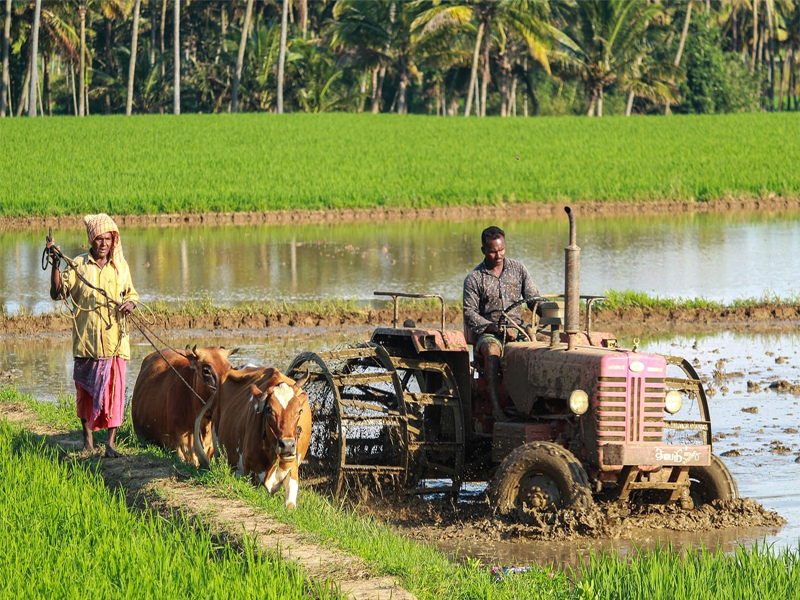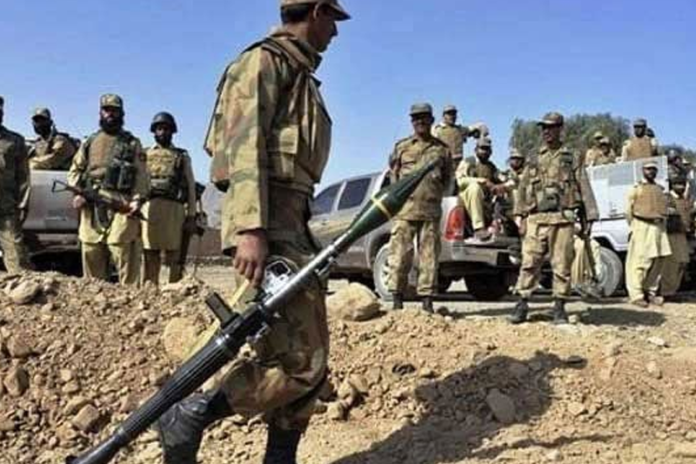Farmers-friendly policies are need of the hour

- 232
- 0
Pakistan is primarily an agricultural country. Revolutionary measures are needed for the development of agriculture here, but the measures taken so far have not proved fruitful. The result is that many food items, including agricultural products, are being imported instead of being exported.
Despite an agriculture economy, our successive governments cotinue to do very little for the casue of farmers.They are always faced with galore of crisis but the recent wheat crisis is the biggest in history, which is a sort of disasters for farmers. According to Pakistan Kisan Ittehad, wheat farmers are not getting their cost. Wheat is being bought at a price lower than the official price by Rs 1,000 per maund. In this situation, they are not even able to buy the necessary accessories for the upcoming crops of cotton and rice. One of the reasons for the current crisis is that the former caretaker government filled the government warehouses with imported wheat a few weeks before the wheat harvest due to which there was no room for new storage.
The practical situation is that farmers are worried, their economy is mostly dependent on wheat crop and income the income from wheat this year suffered a lot. They are not getting the dates set by the government for the purchase of wheat. Bardana is not available. Wheat is not being sold. This situation is painful. The government should take emergency measures to procure wheat and ensure that sowing of wheat in the next crop is not discouraged.There is a need for farmers friendly measures. It is welcome that for the first time in the Punjab province has approved the historic Kisan Package of Rs 400 billion. Several important concessions have been approved for the farmers, the implementation of which can definitely boost agriculture in Punjab. The incentives approved in the meeting include Punjab Kisan Bank, Green Tractor Scheme, Local Manufacturing of Harvester and Agricultural Equipment and Oilseed Promotion Programme. Punjab Kisan Bank will provide loans on easy terms to farmers owning 6 to 50 acres of land. Instead of giving only Rs 6 lakh subsidy on tractors, 70% subsidy will be given on small tractors and 50% on big tractors. The number of tractors has been increased by 10,000. Running tube wells with solar energy and drip irrigation scheme were also reviewed. The popularity of the Kisan Card scheme approved by the government can be gauged from the fact that 47,000 farms have been registered in just 48 hours.
This scheme of agricultural development and incentives for farmers can also be implemented by other provinces according to their local conditions, so that Pakistan can become an agricultural country in the true sense and overcome the current economic difficulties.As a matter of fact, agriculture is the backbone of the national economy, but it is also a bitter truth that only 23.77 million acres of land in Pakistan is agricultural, which is 28% of the total land area, and even in this, more than 8 million acres of land is lying idle. This sector of the national economy was badly affected during the last decade. Another sector is minerals which has the potential to provide economic benefits to the country. The former coalition government formed the Special Investment Facilitation Council (SIFC) to bring the idle potential of agriculture, minerals, IT, energy and other sectors to work in the form of investments, which brought together Gulf states and other countries. As many as 20 projects have been identified and approved for investment worth billions of dollars. These include a project in the agriculture sector where it has been decided to give 85,000 acres of land to an investor for corporate farming. There will be corporate farming on 50 thousand acres of Cholistan. A corporate dairy farm will be built on 15 thousand acres. In which there will be 30 thousand cattle and a 10 thousand acres fodder farm will be built for one lakh cattle. Other projects include Saudi Aramco Refinery, Tapi Gas, Thar coal Rail Link, GB Hydro Project, Cloud Infrastructure and Telecom Infrastructure.
A Special meeting reviewed legislation for research to explore the availability of lithium and a joint investment corporate contract with Afghanistan. PPL barite, lead-zinc project to be sold to potential investors, among other issues were also considered. The way special attention is being given in the fields of agriculture and minerals, if they are fully implemented, the country will definitely be self-sufficient in food and the economy will also be restored.In a couple of years, our agricultural economy will be restored. After which we will not have to go out and ask for loans. Gulf countries are ready to invest under this program. To attract foreign investment, we should emphasize on political stability for economic security, without which no foreign country would be willing to invest. Along with minerals, another sector that has the potential to provide economic benefits to Pakistan is agriculture.Farmers-freindly are needed to fulfill the aspirations of the nation with full zeal in implementing all government initiatives like Green Pakistan under the Special Investment Facilitation Council. Financial experts say that the Green Initiative will be the second major green revolution for the country after 1960, which will open new avenues of development for Pakistan, under which foreign investment of 150 billion dollars is expected in the next five years, 40 lakh people will get employment.

















































